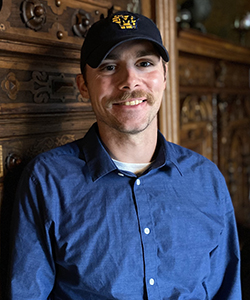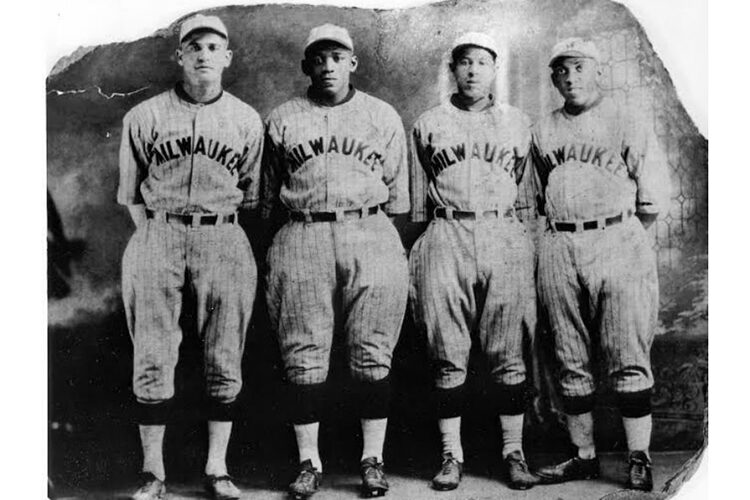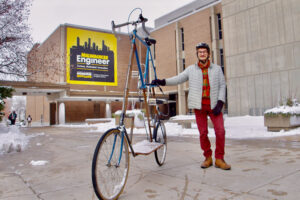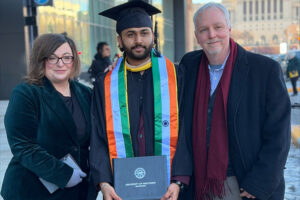With the start of spring training in doubt because of the Major League Baseball labor dispute, Milwaukee Brewers fans can take this opportunity to look back at another pro team that called the city home a century ago.

The Milwaukee Bears played in the Negro Leagues for just one season in 1923. They’re the subject of research of Ken Bartelt, a UWM doctoral student in history, and his master’s thesis, “Brew City Black Ball: Milwaukee as Microcosm of the Early-Twentieth Century Black Baseball Experience.”
On this episode of Curious Campus, UWM’s new podcast about science, discovery and culture, we talk with Bartelt about his work looking at the Negro Leagues in Milwaukee. He’s joined by Neal Pease, a retired UWM professor of history who taught a course on baseball and American history. Pease inspired Bartelt to use his interest in baseball to look at how history influences contemporary issues.
To hear more, check out this week’s episode.
Where did the Milwaukee Bears play their home games?
Bartelt: I think one of the important facts about the Milwaukee Bears’ failure that really reflects the struggles of the Negro Leagues at large was their access to ballparks. Historians have identified the Achilles’ heel of the Negro Leagues as the fact that most Negro League teams did not own their playing facilities and had to rent them from white ballpark owners. This was the case in Milwaukee.

So the Bears had to play their games at Athletic Park, which became Borchert Field, which was owned by the white, American Association Milwaukee Brewers. Sometimes, what happened with this is if the Brewers had a rainout, they may have had to reschedule the next day, and if there was a Negro League game the next day, they would have just bumped the Negro League game because the white team took precedence over the Negro League team.
So, historians have identified this as one of the biggest problems – the lack of access to property ownership that Black Americans had, and that certainly reflected itself in the Negro Leagues.
Can you explain that more? How was that reflective of the economic issues facing Black Americans overall?
Bartelt: Not being able to own your own playing facilities immediately creates another expense – you are paying for the rights to use a field you do not own. That also creates the problem of scheduling instability. If you don’t have a reliable place to play your game, you cannot necessarily guarantee that income. And, this is even more of a problem with baseball before the invention of domed stadiums. If you had rainouts or things like that, you didn’t make any money.
It was very much a shoestring budget. Each one of these games mattered. And that reflects the broader pattern in American history where Black Americans were not able to create generational wealth and institutional wealth the way that white Americans were able to, and that’s reflected in baseball as well.
What else might people find surprising about the Negro Leagues?

Pease: The desegregation of baseball was a necessary thing. But I bet a lot of people don’t recognize that a lot fewer African Americans played baseball professionally after Jackie Robinson than they did before, because of the collapse of the Negro Leagues and because good African American ballplayers now had to compete with the white ballplayers for spots on integrated teams. It’s kind of showing the flip side of segregation.








